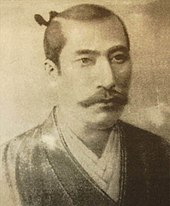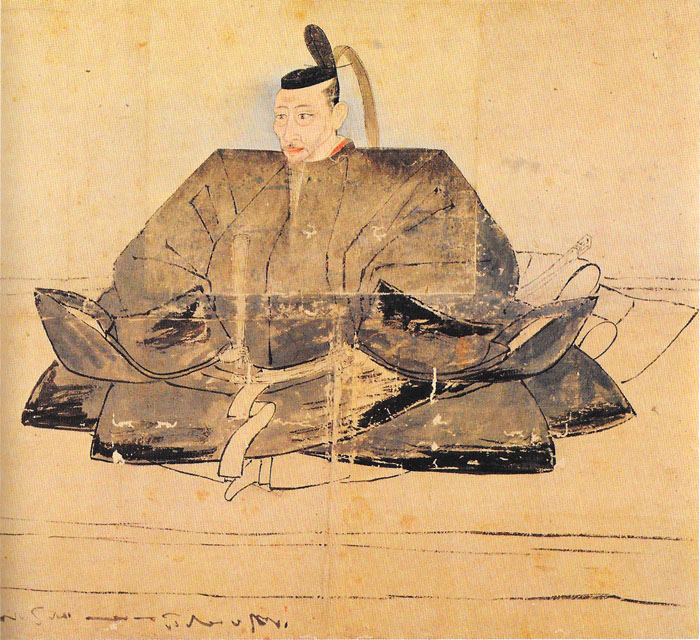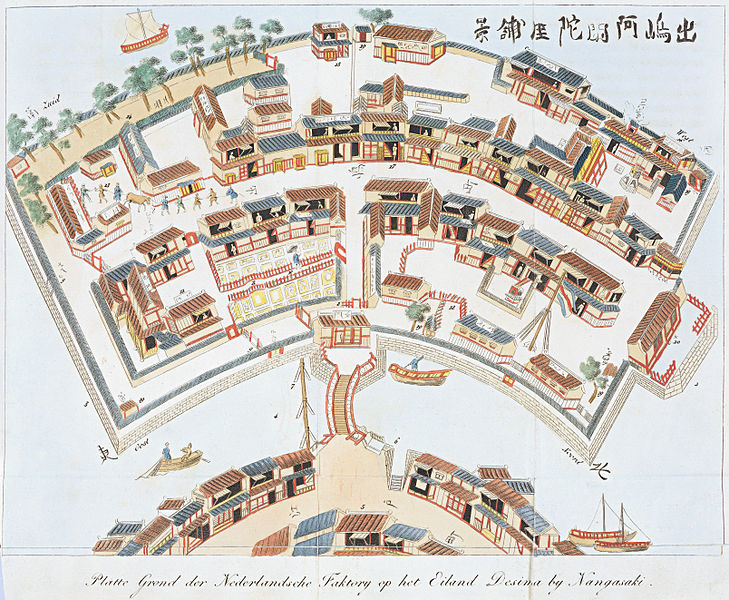" In their singleminded pursuit of stability and order, the early Tokugawa also feared the subversive potential of Christianity and quickly moved to obliterate it, even at the expense of isolating Japan… " - Sarah Lyons Watts, Professor Emeritus of Wake Forest U [n.d.]
Pre-Isolation
Europeans first visited Japan in 1543. Oda Nobunaga promoted free trade with Europe and welcomed missionaries, aiming to weaken and cause unrest among his Buddhist foes through Christianity.

Oda Nobunaga
Giovanni Niccolò [1585]
Wikipedia
"Following the Portuguese discovery of Japan in 1543, under Japan’s first great unifier, Oda Nobunaga, trade with Western nations initially flourished in Japan. Contact with foreign powers also led to the introduction of Christianity into Japanese society" - Yayori Takano, author of Foreign Influence and the Transformation of Early Modern Japan [2010]
"The arrival of Spanish Franciscan and Dominican monks introduced an element of national rivalry between factions, and Japanese leaders began to feel that it could lead to eventual military conquest by Spain or Portugal, pushing Toyotomi to pursue a persecution of all Catholics until his death" - Takano [2010]

Toyotomi Hideoyoshi
Sanno Kanno [1598]
Shouzou.com
Nobunaga's successor, Toyotomi Hideyoshi, unified Japan through Buddhism. Fearing European conquest, he began a series of anti-Chrisitan policies.
The instability of clashing religions and the desire of peace caused Hideyoshi's successors - the Tokugawa shogunate - to implement sakoku (closed country). Japan created a barrier isolating itself from nearly all nations.
"The Dutch alone, of all Christian nations, were allowed to remain for purposes of traffic, and they purchased the privilege at the price of national humiliation and personal imprisonment, for which all the profits or gainful barter offer but an inadequate compensation" - Matthew Perry and Francis L. Hawks, authors of Narrative of the Expedition of an American Squadron to the China Seas and Japan [1856]

Dutch Island of Deshima
Toshimaya Bunjiemo [1780]
Wikipedia
________________________________________________________________________________________________________________________________________________________________
Christianity's threatening power caused Japan to barricade itself from the rest of the world, entering a period of peace and prosperity under sakoku.
________________________________________________________________________________________________________________________________________________________________